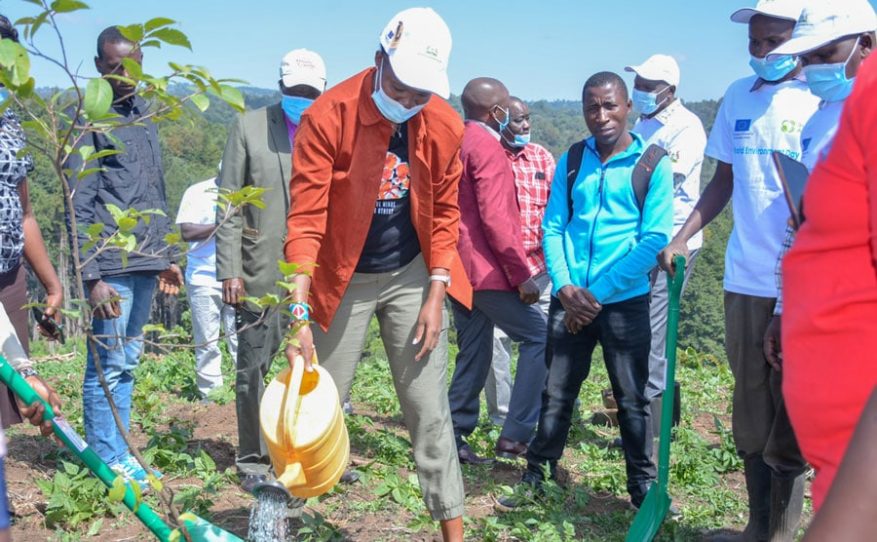Self Help Africa’s Kenya team have joined representatives from local communities, forestry and environmental services, and other agencies to plant 10,000 new trees on degraded lands along one of the most important water catchments in Baringo County.
More than 300 community representatives and guests attended a ceremony that launched the initiative on World Environment Day, with the Governor of the expansive Baringo County, Stanley Kiptis officially launching the new tree planting initiative.
This initiative is part of our One Million Trees! campaign. Your donation of just €5 will plant a tree in Ireland, and 10 in Africa!
The tree planting took place at Chemususu, Baringo’s largest water catchment area, The catchment area is the source of many rivers and streams draining fthrough Baringo and all the way south to Nakuru County, and provides hundreds of thousands of communities with water for domestic use, livestock, and crop production.
The work was carried out as part of Self Help Africa’s new four-year Baringo climate adaptation project, which is designed to improve access for 10,000 agro-pastoralist households to agricultural extension services and other support in the area. ‘Baringo Resilience Initiative: Nurturing Greater Opportunity (BARINGO),’ is backed by the European Union, and will contribute to food, nutrition and income security by promoting productive, climate resilient and nutrition sensitive agriculture and livestock production strategies.
Baringo County is largely Arid and Semi-Arid (ASAL) in central/northern Kenya with characteristic high levels of degradation. The situation is made worse by climate change and weather variability often resulting in extreme conditions of drought, floods and more recently pest infestation such as the recent invasion of desert locusts. The project also aims to restore 20,000 hectares of degraded lands including several major water catchments across the region.
Indigenous trees including podo carpus, prunus Africana,vitex kiniensis, paliscias kukuyensis, olea Africana, juniperus procera, warbugia ugandensis were planted in the area over a two weeks period.
Self Help Africa’s Baringo project manager Julius Rono said that there was a strong link between environmental degradation, climate change and food insecurity in the area. “Integrated land use and environmental restoration efforts are a key part of improving the future security of local communities,” he said.

